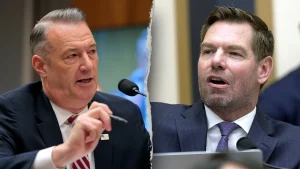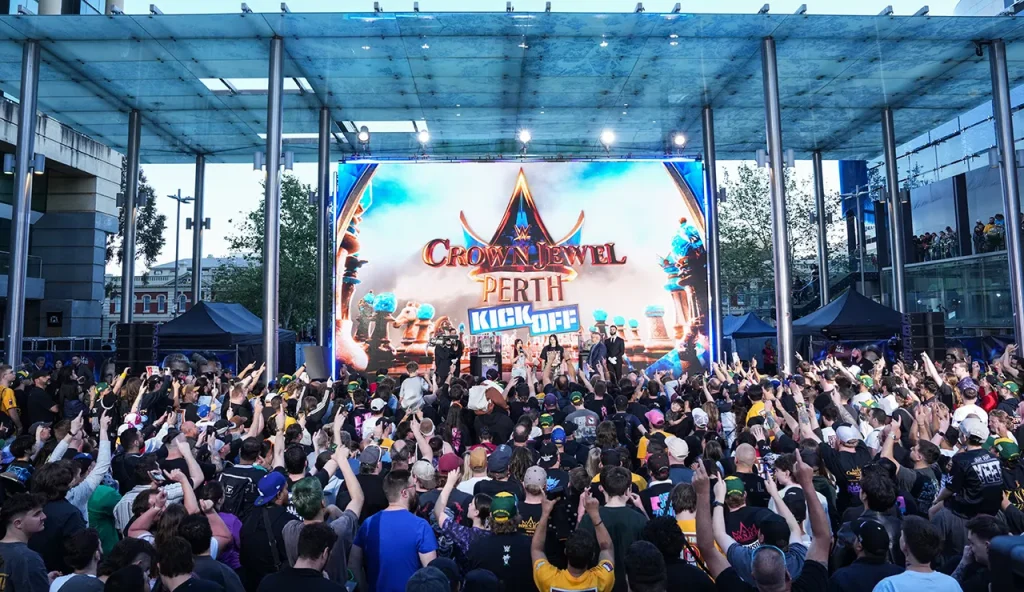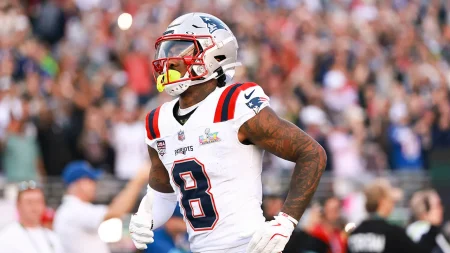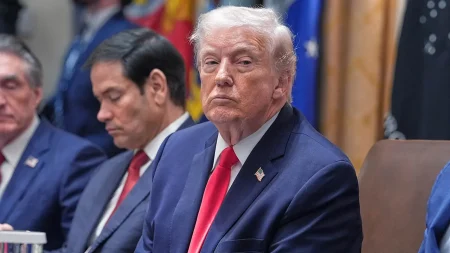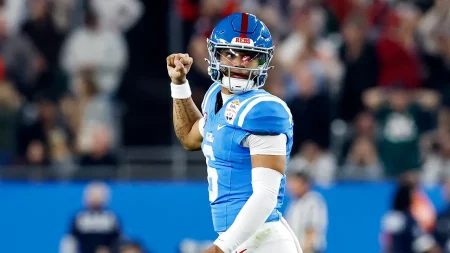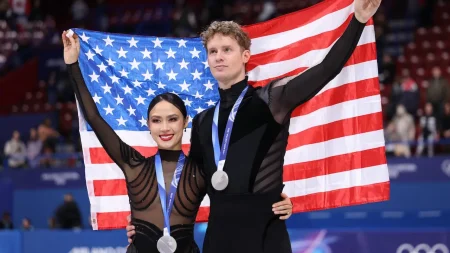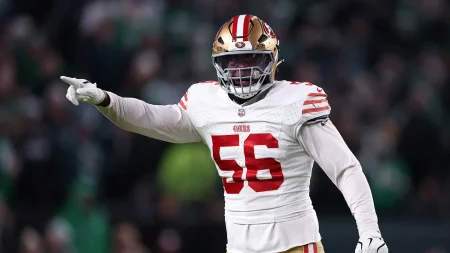WWE’s Crown Jewel in Australia Highlights Cultural Tensions
In the early hours of Saturday, WWE expanded its global reach with the “Crown Jewel” premium live event in Perth, Australia, but the reception to certain elements revealed underlying international tensions. When Australian singer Sophie Foster performed the “Star-Spangled Banner” before the event began, the crowd responded with unmistakable boos. This reaction seems to be part of a growing trend of international audiences expressing dissatisfaction with American symbolism at sporting events, particularly since the beginning of the Trump presidency. The Australian audience’s response reflects broader geopolitical dynamics playing out in unexpected venues like professional wrestling.
The booing of the U.S. national anthem is not isolated to Australia. Similar reactions have occurred in Canada during various sporting events, including the 4 Nations hockey tournament in Toronto, where the Canadian crowd strongly expressed their disapproval. This particular incident followed controversial comments from President Trump about making Canada the “51st state” during ongoing trade disputes. The tension went both ways, with WWE commentator Pat McAfee calling Canada “terrible” after the anthem was booed at a Toronto Raptors game. In March, New York Rangers fans reciprocated by booing the Canadian national anthem during a match against the Toronto Maple Leafs, suggesting that these expressions of national sentiment have become increasingly common in sports arenas.
WWE has been investing significantly in its Australian presence throughout the week, scheduling multiple major shows including “Smackdown” on Friday night and plans for “Monday Night Raw” to be broadcast from the country as well. This represents an important return to the Australian market for WWE, which first visited in the 1980s but had a six-year absence before returning last year with the “Elimination Chamber” event. The organization clearly sees Australia as a valuable international territory, despite the complicated reception to American symbolism that was displayed at Crown Jewel.
The event featured several high-profile matches that highlighted WWE’s commitment to delivering premium entertainment to its global audience. Roman Reigns faced off against Australian native Bronson Reed, Tiffany Stratton competed against Stephanie Vaquer, and wrestling legend John Cena battled A.J. Styles. These matchups represented WWE’s blend of established superstars and emerging talent, providing the Australian audience with a diverse showcase of wrestling entertainment despite the earlier tension during the national anthem performance.
The anthem incident at Crown Jewel reveals how sporting events and entertainment spectacles have become spaces where international relations and political tensions manifest in unexpected ways. What might once have been simply a ceremonial performance before an entertainment event now carries the weight of complex geopolitical relationships. The booing of national anthems—whether American, Canadian, or otherwise—reflects how ordinary citizens express their feelings about international affairs through cultural moments, turning entertainment venues into forums for collective political expression.
As WWE continues to expand globally, these incidents highlight the challenges of navigating different cultural and political environments. The organization must balance its American origins with the sensibilities of diverse international audiences, particularly at a time of heightened global tensions. While professional wrestling has always contained elements of nationalism and cultural stereotypes as part of its storytelling, the real-world reactions from audiences remind us that even in the theatrical world of WWE, authentic feelings about national identity and international relations can’t be scripted. As John Cena prepares for his final WWE match at Saturday Night’s Main Event in December, these global dynamics form the backdrop for what has become not just an American entertainment product, but a truly international cultural phenomenon.

